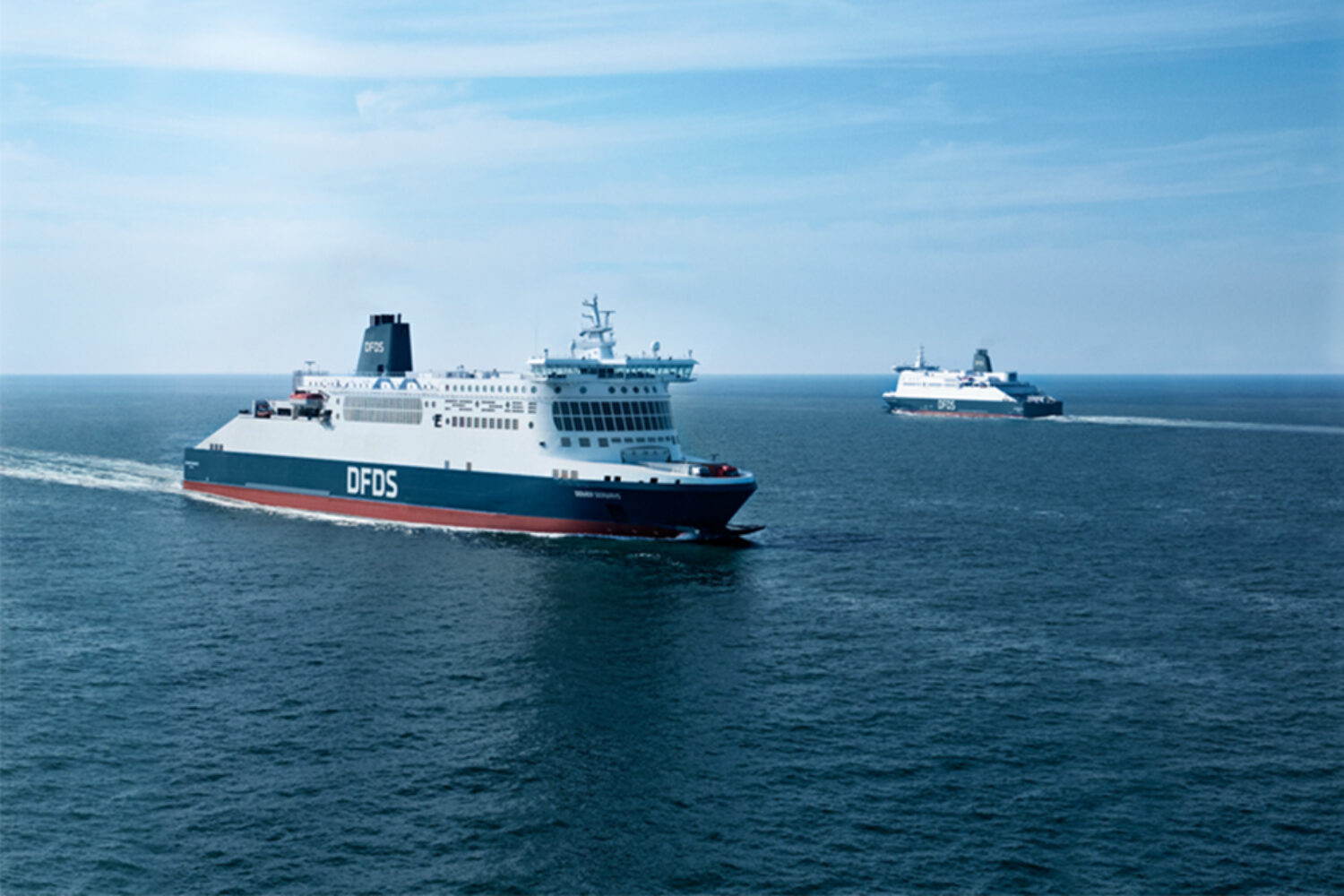Ferry operator DFDS plans to deploy up to six battery-powered ships on the Channel routes between France and the UK.
The English Channel is one of the busiest shipping corridors in the world. It connects two of the world’s largest economies and accounts for 33% of trade between the EU and the UK. Due to the relatively short distance between the UK and mainland Europe, the routes on the Channel are ideal for electric ferry traffic. [ds_preview]
The UK’s Minister for Investment and Regulatory Reform, Dominic Johnson, visited DFDS’ headquarters in Copenhagen today to discuss the decarbonization of the shipping sector and the electrification of cross-Channel shipping. At the meeting, DFDS reaffirmed its commitment to the electrification of Channel shipping. According to the shipping company, DFDS’ long-term goal is to deploy up to six battery-powered ships on the Channel routes.
DFDS wants to deploy two battery-powered ships in the eastern English Channel by 2030. According to the shipping company, this is part of a program to invest in six environmentally friendly vessels – two methanol, two ammonia and two electric vessels – at a total cost of around DKK7.3bn over the next six years. In the long term, up to six fully electric vessels are to be deployed on the canal, which would then be the largest electric ferries in the world.
DFDS: “Requires considerable investment in innovation, technology and infrastructure”
The environmentally friendly conversion of maritime transport on the English Channel does not only depend on the ships at sea. Sufficient power supply on land and infrastructure for recharging facilities in ports are equally important to complete the electrification of the fleet.
Johnson said: “With its excellent infrastructure, technological advances and proximity to Denmark, the UK is the partner of choice for green investments like this. DFDS’ commitment underlines the value of our trading relationship and the strategic importance of the cross-Channel shipping route. The UK Government remains committed to its target of achieving net zero emissions by 2050 and the green transition of cross-Channel shipping will create British and Danish jobs and strengthen both our economies.”
“We have a shared goal with the UK government to decarbonize shipping across the Channel. The transition will not be easy. It will require significant investment in innovation, technology and infrastructure, as well as collaboration and partnerships between the public and private sectors. But I am confident that we will succeed,” said Torben Carlsen, CEO of DFDS. The shipping company will invest in environmentally friendly vessels and work with ports and governments on both sides of the Channel to decarbonize transport across the Channel.
DFDS operates twelve ferry routes linking the UK with France, Germany, the Netherlands, Sweden and Denmark and employs 3,300 people in five ports and several logistics offices in the UK, as well as on board three UK-flagged vessels.
Meanwhile, the Scandlines shipping company plans to convert two of the four-passenger ferries on the Puttgarden-Rødby route into plug-in ferries. This will allow the ships to be charged with electricity from renewable sources in both Puttgarden and Rødby.













